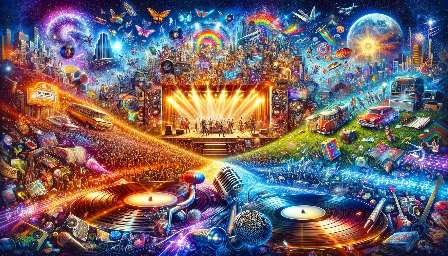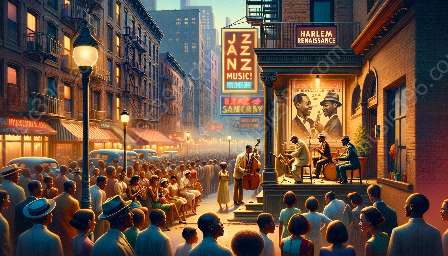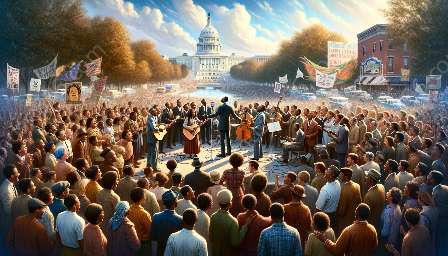Gospel music has a rich history dating back to the 17th century, evolving over time to adapt to new technologies and cultural changes. In the digital age, contemporary gospel musicians face unique challenges and opportunities that significantly impact the genre and its listeners.
History of Gospel Music
The origins of gospel music can be traced back to the African-American religious experience that emerged during the 17th century. It has deep roots in spirituals, hymns, and sacred music, blending elements of African rhythms, call-and-response singing, and Christian themes. The early gospel music traditions were primarily expressed in churches and revivals, serving as a form of spiritual upliftment and empowerment for African-American communities.
As gospel music gained popularity, it became a powerful platform for social commentary, advocating for civil rights and addressing issues of faith, hope, and resilience. This led to the rise of influential gospel artists such as Mahalia Jackson, Thomas A. Dorsey, and the Staple Singers who helped shape the genre and its impact on society.
In the 20th century, gospel music continued to evolve, incorporating elements of blues, jazz, and rock to create diverse subgenres such as urban contemporary gospel, traditional gospel, and gospel rap. Its multifaceted nature has contributed to its widespread appeal and influence across various cultures and musical traditions. The rich history of gospel music reflects its deep cultural significance and pivotal role in shaping the modern music landscape.
Challenges for Contemporary Gospel Musicians
The digital age has brought both challenges and opportunities for contemporary gospel musicians. One of the key challenges is the shift in music consumption patterns, with streaming services and digital platforms dominating the market. This has significantly impacted album sales and revenue streams for artists, posing a financial hurdle for many gospel musicians. Additionally, the rise of social media and digital content creation has intensified competition, making it challenging for emerging gospel artists to break through the noise and establish a solid fan base.
Furthermore, the digital landscape has also raised concerns about maintaining artistic integrity and authenticity in an era characterized by instant gratification and short attention spans. The pressure to produce commercially viable music while staying true to the core values of gospel music can be daunting for contemporary artists. Navigating the complexities of the digital music industry requires savvy marketing strategies, effective branding, and a deep understanding of audience engagement.
Opportunities for Contemporary Gospel Musicians
Despite these challenges, the digital age presents numerous opportunities for contemporary gospel musicians to reach a global audience and connect with fans in unprecedented ways. Social media platforms, digital distribution channels, and streaming services offer artists direct access to a diverse and expansive listener base, enabling them to bypass traditional gatekeepers and amplify their music worldwide. In addition, digital tools and technologies have empowered gospel musicians to create and produce music with greater flexibility, breaking down barriers to entry and fostering a culture of innovation and experimentation.
Moreover, the digital landscape has opened doors for collaborative ventures, allowing gospel artists to engage in cross-genre collaborations, virtual performances, and interactive experiences that transcend geographical boundaries. The ability to communicate directly with fans through live streaming, virtual concerts, and social media engagement has deepened the sense of community and connection within the gospel music sphere. By harnessing the power of digital platforms, contemporary gospel musicians can broaden their creative horizons, engage with diverse audiences, and amplify the transformative messages inherent in gospel music.
Impact on the Music Industry
The challenges and opportunities for contemporary gospel musicians in the digital age have reverberated throughout the broader music industry, contributing to the evolution of music consumption, production, and distribution. The fusion of gospel music with digital technologies has reshaped the way music is created, shared, and experienced, blurring traditional boundaries and opening new frontiers for artistic expression. The influence of gospel music in the digital age extends beyond its genre, inspiring innovations in music production, live performance formats, and audience engagement strategies.
Additionally, the digital age has facilitated the emergence of innovative business models and revenue streams for gospel musicians, allowing them to monetize their creative output through digital platforms, virtual events, and merchandise sales. This has empowered artists to take greater control of their careers and connect directly with their audience, bypassing traditional intermediaries and redefining the dynamics of the music business. The impact of contemporary gospel musicians in the digital age resonates not only within the gospel music community but also across the broader music industry, shaping trends and setting new standards for artistic innovation and social impact.
Conclusion
The challenges and opportunities for contemporary gospel musicians in the digital age are deeply intertwined with the rich history of gospel music and the broader landscape of music as a whole. The evolution of gospel music in the digital age reflects its enduring resilience and adaptability, as artists navigate the complexities of the digital landscape while embracing new avenues for creative expression and audience engagement. By understanding the historical foundations of gospel music and appreciating its transformative power, contemporary gospel musicians can leverage the opportunities presented by the digital age to amplify their voices, connect with global audiences, and contribute to the ongoing evolution of music as a vibrant and inclusive art form.




































